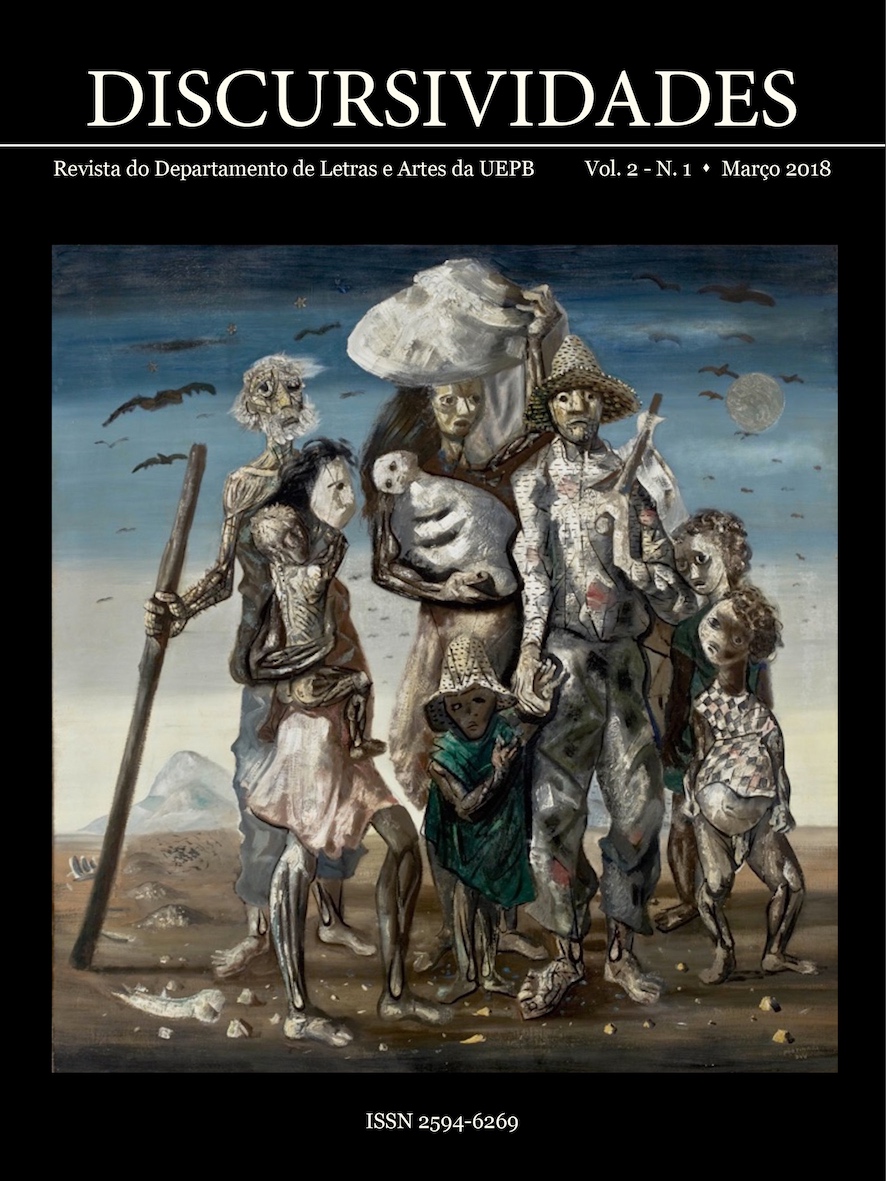O discurso da felicidade como tática biopolítica na revista SuperInteressante
Keywords:
Discurso da felicidade, Análise do discurso, BiopolíticaAbstract
This work aims to analyze the production of meanings in the dis- course of happiness as a biopolitic practice, in order to verify, through nor- mativity, how to govern the conduct of the social body, explaining how the control of the life of the population is exercised from the strategic mecha- nisms of power. We will use as a theoretical basis, the Discourse Analysis with the contributions of Michel Foucault, regarding the genealogy of power, bringing the possibility of discussing the relations between discourses, sub- jects, history and powers in society. Methodologically, we use a descriptive- -interpretative theory to analyze the syncretic materialities of the discourse at issue, bringing as indispensable not only the structure, but the socio-his- torical dimension that constitutes it. Our corpus is composed of a cover of the magazine SuperInteressante, as well as its material, whose analysis will be subsidized by notions such as subject, control, biopolitics, among others. We emphasize that happiness has become a necessity, an imperative in our society, to the point that the sad subject is excluded from it. Thus, sadness becomes something abnormal to be immediately removed from the daily so that, in this way, the subject can meet productive purposes in the social envi- ronment and be ordered according to their claims.
References
BAUMAN, Zygmunt. Modernidade líquida. Tradução de Plínio Dentzien. Rio de Janeiro: Zahar, 2001.
BAUMAN, Zygmunt. Vida para consumo: a transformação das pessoas em mercadoria. Trad. Carlos Alberto Medeiros. Rio de Janeiro: Zahar, 2008.
BAUMAN, Zygmunt. A arte da vida. Rio de Janeiro: Zahar, 2009.
BIRMAN, Joel. Muitas felicidade?! O imperativo de ser Feliz na contempora- neidade. In: FREIRE FILHO, João. (Orgs.). Ser feliz hoje: reflexões sobre o imperativo da felicidade. Rio de Janeiro: Editora FGV, 2010, p. 27-47.
CHAUÍ, Marilena. Heidegger, vida e obra. In: Prefácio. Os pensadores. São Paulo: Nova Cultural, 1996.
CAPONI, Sandra. Viver e deixar morrer: biopolítica, risco e gestão das de- sigualdades. In: NALLI, Marcos; MANSANO, Sonia Regina Vargas. (Orgs.). Michel Foucault: desdobramentos. Belo Horizonte: Editora Autêntica, 2016, p. 229-246.
FOUCAULT, Michel. Em defesa da sociedade. São Paulo: Martins Fontes, 1999. FOUCAULT, Michel. Segurança, território e população. São Paulo: Martins
Fontes, 2009.
FOUCAULT, Michel. A ordem do discurso. Trad. Laura Fraga de Almeida Sampaio. 22. ed. São Paulo: Edições Loyola, 2012. 74 p.
FOUCAULT, Michel. Vigiar e punir: nascimento da prisão. 40. ed. Tradu- ção de Raquel Ramalhete. Petrópolis, RJ: Vozes, 2012a.
FOUCAULT, Michel. Arqueologia do saber. 8a ed. Rio de Janeiro: Forense Universitária, 2013.
FOUCAULT, Michel. História da sexualidade 1: a vontade de saber. São Paulo: Paz e terra, 2014.
FREIRE FILHO, João. A felicidade na era de sua reprodutibilidade científica: construindo “pessoas cronicamente felizes”. In: FREIRE FILHO, João. (Orgs.). Ser feliz hoje: reflexões sobre o imperativo da felicidade. Rio de Janeiro: Editora FGV, 2010, p.49-82.
HEIDEGGER, M. Ser e tempo. Tradução de Márcia de Sá Cavalcante. Petrópolis, 1989.
MEDEIROS, C. S. O conceito de felicidade na mídia e o estímulo ao consumo permanente: a felicidade não tem preço? Famecos/PUCRS, Porto Alegre, n. 21, p. 35-42, 2009.
Downloads
Published
How to Cite
License
Copyright (c) 2018 Regina Baracuhy; Kamila Nogueira

This work is licensed under a Creative Commons Attribution 4.0 International License.
Authors who publish in this journal agree to the following terms:
a) Authors retain copyright and grant the journal the right of first publication. The articles are simultaneously licensed under the Creative Commons Attribution 4.0 International Public License (CC BY 4.0) which allows the sharing of the work with acknowledgment of its authorship and initial publication in this journal.
b) Discursividades journal offers immediate free access to its content, following the principle that making scientific knowledge available to the public free of charge provides greater global democratization of knowledge.






